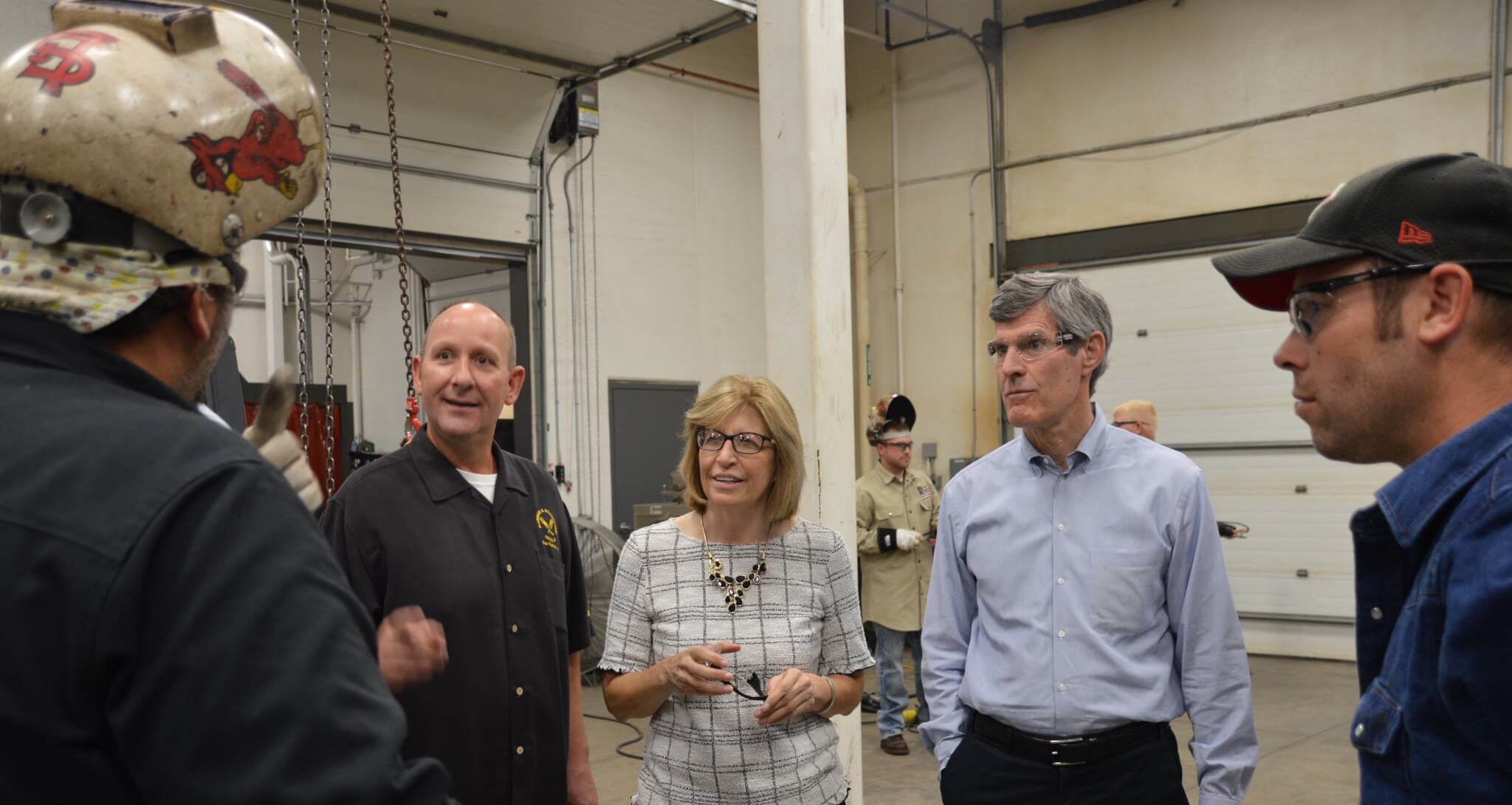
With the exception of the agricultural sector, Iowa’s economy is doing very well as evidenced by an extremely low unemployment rate of 2.6%. The stock market is booming due to increasing corporate profits, yet Iowa employees’ wages and salaries are stagnant. Factoring in inflation, Iowans are seeing their net wage increases consumed. Iowans at the lowest income levels are actually seeing a decline in their incomes due to inflation.
Both the Republican federal and state tax cuts are benefiting the rich and corporations, but for the majority of Americans the GOP promises have failed miserably. Republicans are boasting about the great economy, but most Americans are getting left behind. Many economists predicted that the GOP tax cuts for top income earners would never “trickle down” to benefit most Americans.
A new study from United Way of Iowa suggests income insecurity is getting worse. “The organization’s 2018 ALICE report shows 457,044 households, 37 percent of the state’s total, can’t afford the basic costs of living. ALICE stands for Asset-Limited, Income-Constrained, Employed.”
How can this be? Traditional supply and demand economic theory predicts when demand for workers is high and the supply of workers is low it forces employers to raise wages to increase and maintain their workforce.
However, there is a growing disconnect between the critical demand for workers and the willingness of employers to offer corresponding wage increases.
A recent Forbes article summed up this disconnect between high labor demand and low wages as, “labor lost and capital won.” They offer several reasons for the worker income stagnation in a booming economy.
First, labor’s bargaining power falls as unions weaken. Between 1979 and 2013, private sector union membership fell from about 34 percent to 10 percent. The Republican Party’s corporate-dominated, anti-union movement has successfully reduced union revenue, making it harder to organize and demand higher wages. The Supreme Court, in Janus v AFSCME, voted 5 to 4 against the interests of public sector unions as well. Unions also play a pivotal role in helping to pass increases in minimum wage laws.
The Iowa Republican legislature could be the poster boy for attacks on unions. They terminated the Democrats passage of minimum wage increases in four Iowa counties and gutted the public union’s bargaining rights. Governor Reynolds signed the legislation.
Second, workers fear job insecurity. There isn’t any hope of a future of 40 years and a gold watch with companies today. A very low unemployment rate doesn’t give workers any security from layoff.
Third, corporate giants are accumulating greater market power. Consumers may benefit with lower prices, but employees aren’t rewarded with higher wages. Productivity has been running ahead of wages, which puts little pressure on prices but boosts corporate profits.
The Iowa Policy Project (IPP) has a newly released study called “A Roadmap for Opportunity.” The first in the series is, “promoting economic security for Iowa workers.”
“I think in Iowa and nationally the big story of the last 18 months is that the economy is booming without bringing up wages,” said Colin Gordon, a senior research consultant at the Iowa Policy Project.
“That’s especially true in Iowa, where we’ve got an unemployment rate that’s hovering below 3 percent, but it doesn’t seem to be giving workers much bargaining power with wages.”
The IPP study points to many of the same causes as the Forbes article.
“Iowa leaders have started turning their backs on the state’s long and important role to enhance and protect the economic security of Iowa’s workers. The state sets a minimum wage level, enforces wages and hours laws, manages a system to compensate injured workers, and establishes ground rules for collective bargaining by public and private sector workers. Lawmakers in recent years have seriously weakened these.”
The IPP’s summary suggests electing a governor and legislators committed to the goal of restoring the economic security of Iowa workers.
The 2018 midterm elections provide a sharp contrast. (1) A choice between more of the same anti-worker trickle down voodoo economics under Republican domination; or (2) a sharp forward push by electing Democratic leaders committed to a pro-worker, pro-union agenda with fair tax proposals that will result in rising wages and salaries for all Iowans.
by Rick Smith
Posted 9/14/18

Iowa Republicans make outlawing gay marriage key 2024 campaign priority
Iowa Republicans have made outlawing gay marriage a key goal in their 2024 party platform. During the Iowa GOP’s 2024 state convention on Saturday,...

Department of Justice says Iowa immigration law violates US Constitution
If Iowa doesn’t suspend the enforcement of its new immigration law by May 7, the state could face a federal lawsuit, according to the Des Moines...

Rushing: Iowa State president said the quiet part out loud
I want to thank Iowa State University President Wendy Wintersteen for doing us all a favor by finally saying the quiet part out loud: all the...

Iowa sets aside almost $180 million for year two of voucher program
Iowa has committed nearly $180 million in taxpayer funds to support private school tuition in the 2024-25 school year, which is almost $50 million...

Kalbach: Immediate action needed on corporate ag pollution
Iowa agriculture has undergone substantial changes over the past 40 years. We see it all around us. Rather than crops and livestock being raised on...

VIDEO: Jochum calls Gov. Reynolds’ summer meal program a ‘hunger game’
Iowa Gov. Reynolds announced a competitive $900,000 grant program to feed Iowa children over the summer, months after she declined $29 million in...





